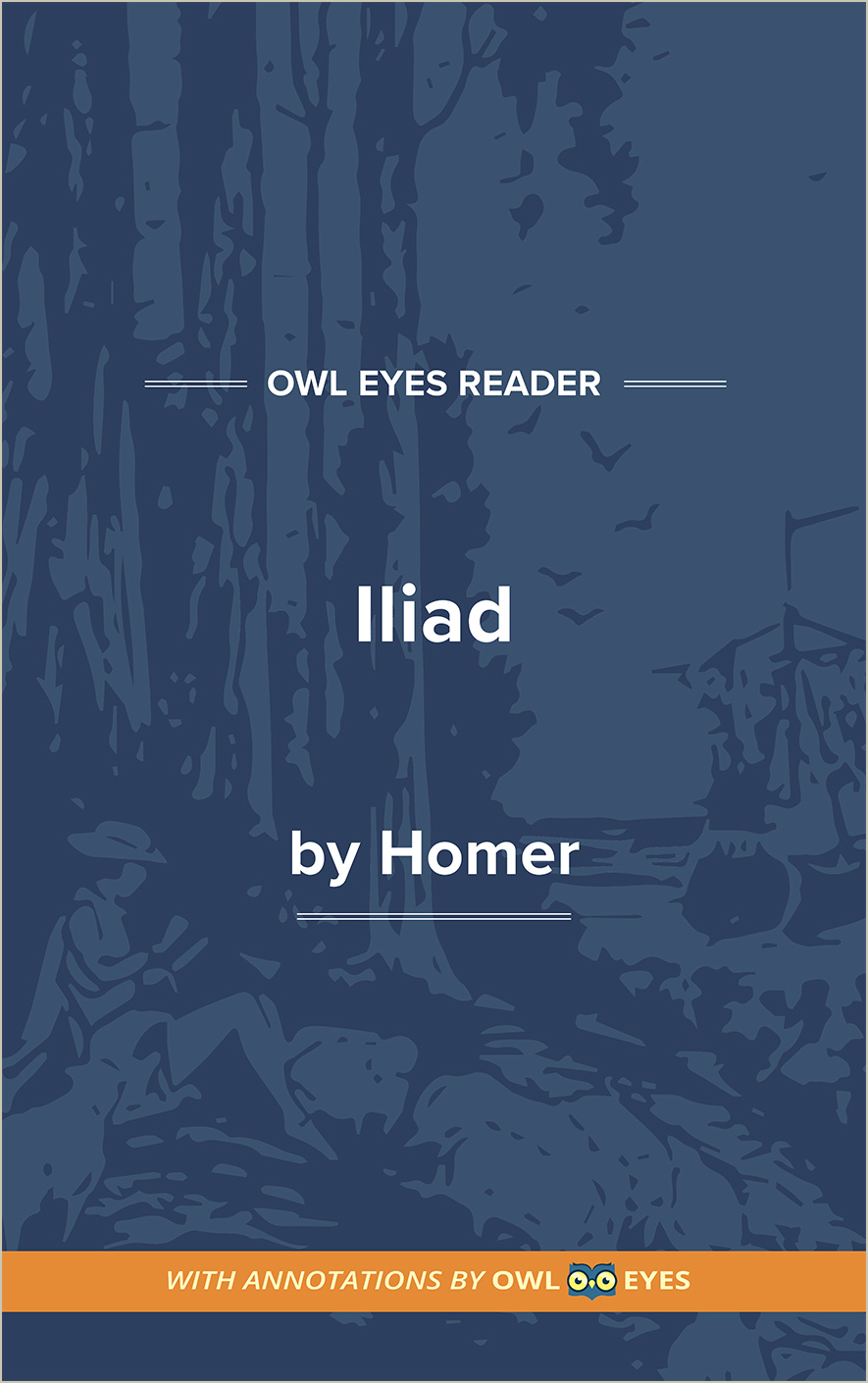Analysis Pages
Character Analysis in Iliad
Achilles: Son of the immortal sea nymph Thetis and Greek hero Peleus, Achilles is one of the most widely known heroes of myth. Commander of the Myrmidons, Achilles is the most powerful hero in the Iliad and was said to be invulnerable in all of his body but his heel, where his mother held him when she dipped him in the river Styx in an attempt to make him immortal. Characterized by his thirst for glory, Achilles is proud and easily offended, and the wrath that ensues when his pride is hurt becomes the driving force behind his every action throughout the course of the text. Achilles’ wrath is incited by Agamemnon’s claiming of his war prize, the concubine Briseis, and redirected to battle by the death of Patroclus at the hands of Hector. Any preexisting expectation of nobility and honor being present in Achilles’s personality is shredded by his selfish and often damaging reactions to the circumstances of the war. When Briseis is taken from him, Achilles abandons the Achaean forces and prays they’ll suffer at the hands of the Trojans and remains in this mindset until Patroclus is killed. After his friend’s death, Achilles’ primary goal turns to vengeance by way of killing Hector. At that point, nothing stands in the way of his bloodlust. Achilles is willing to kill anyone and sacrifice anything is his pursuit of glory so that his name may live on.
Agamemnon: The head of the Achaean army, Agamemnon is the King of Mycenae and the brother of King Menelaus of Sparta. Agamemnon is not a great warrior like the heroes who accompany him, but he is respected for his significant political power. Agamemnon possesses many of the same character flaws as Achilles, a few being his lack of forethought, selfishness, and excessive pride. These flaws have drastic consequences, such as when Agamemnon brings a plague down upon his entire army because he refuses to return the daughter of a priest that he has taken as a concubine. Only after the loss of soldiers has become crippling does Agamemnon acquiesce, but immediately follows by tactlessly claiming Achilles’ concubine as his own and gaining the wrath of his greatest warrior. Agamemnon repeatedly and stubbornly refuses to make concessions until circumstances have become dire for himself and his men, selfishly pursuing momentary passions without considering the greater good of his army or his cause.
Hector: The heir to his father’s throne and the greatest Trojan warrior, Prince Hector of Troy is the firstborn son of King Priam and Queen Hecuba. Hector is one of the only heroes in the Iliad portrayed with redeeming qualities, but he is brutally murdered and disrespected by Achilles. Hector is characterized by his prowess in battle, devotion to his family and city, and nobility and courage in the horrific events of war. In contrast, he is also victim of bouts of cowardice and impulsiveness that are the ultimate cause of his downfall. Hector and Achilles are the greatest warriors on their respective sides, and therefore act as foils to each other. While Hector is a mature, noble family man driven by his sense of responsibility to the city of Troy, Achilles is wildy passionate and impulsive, valuing glory over all else.
Paris: Prince Paris of Troy, brother to Hector and son of Priam and Hecuba, abducts Helen of Sparta. This is the very reason the Trojan War begins. Paris is cast in a shameful light because he is self-centered and unmanly, thus earning the scorn of his family and the hatred of his subjects. In the text, Paris fights well with a bow and arrow (viewed as a more cowardly weapon than a sword or spear), but lacks the will and courage for battle, preferring to stay within the city walls and make love to his wife while the rest of the men battle.
Character Analysis Examples in Iliad:
Book I
🔒"I shall have trouble if you set me quarrelling with Juno..." See in text (Book I)
"SING, O GODDESS, the anger of Achilles son of Peleus..." See in text (Book I)
"Juno..." See in text (Book I)
"Jove..." See in text (Book I)
"Patroclus..." See in text (Book I)
"It was the son of Jove and Leto..." See in text (Book I)
Book III
🔒"my abhorred and miserable self...." See in text (Book III)
Book VII
🔒"They fought with might and main, but were reconciled and parted in friendship...." See in text (Book VII)
Book IX
🔒"Even now, however, be appeased, and put away your anger from you..." See in text (Book IX)
Book XI
🔒"but you are older than he..." See in text (Book XI)
Book XIII
🔒"the vein that runs all the way up the back to the neck..." See in text (Book XIII)
Book XIX
🔒"Folly, eldest of Jove's daughters, shuts men's eyes to their destruction..." See in text (Book XIX)
"Thus did he speak, and the Achaeans rejoiced in that he had put away his anger...." See in text (Book XIX)
Book XX
🔒"As a fire raging in some mountain glen after long drought—and the dense forest is in a blaze, while the wind carries great tongues of fire in every direction—even so furiously did Achilles rage..." See in text (Book XX)
Book XXII
🔒"I know you what you are, and was sure that I should not move you, for your heart is hard as iron..." See in text (Book XXII)
Book XXIV
🔒"Cassandra..." See in text (Book XXIV)
"The two wept bitterly—Priam, as he lay at Achilles' feet, weeping for Hector, and Achilles now for his father and now for Patroclus, till the house was filled with their lamentation..." See in text (Book XXIV)
"Think of your father, O Achilles like unto the gods, who is such even as I am, on the sad threshold of old age..." See in text (Book XXIV)

